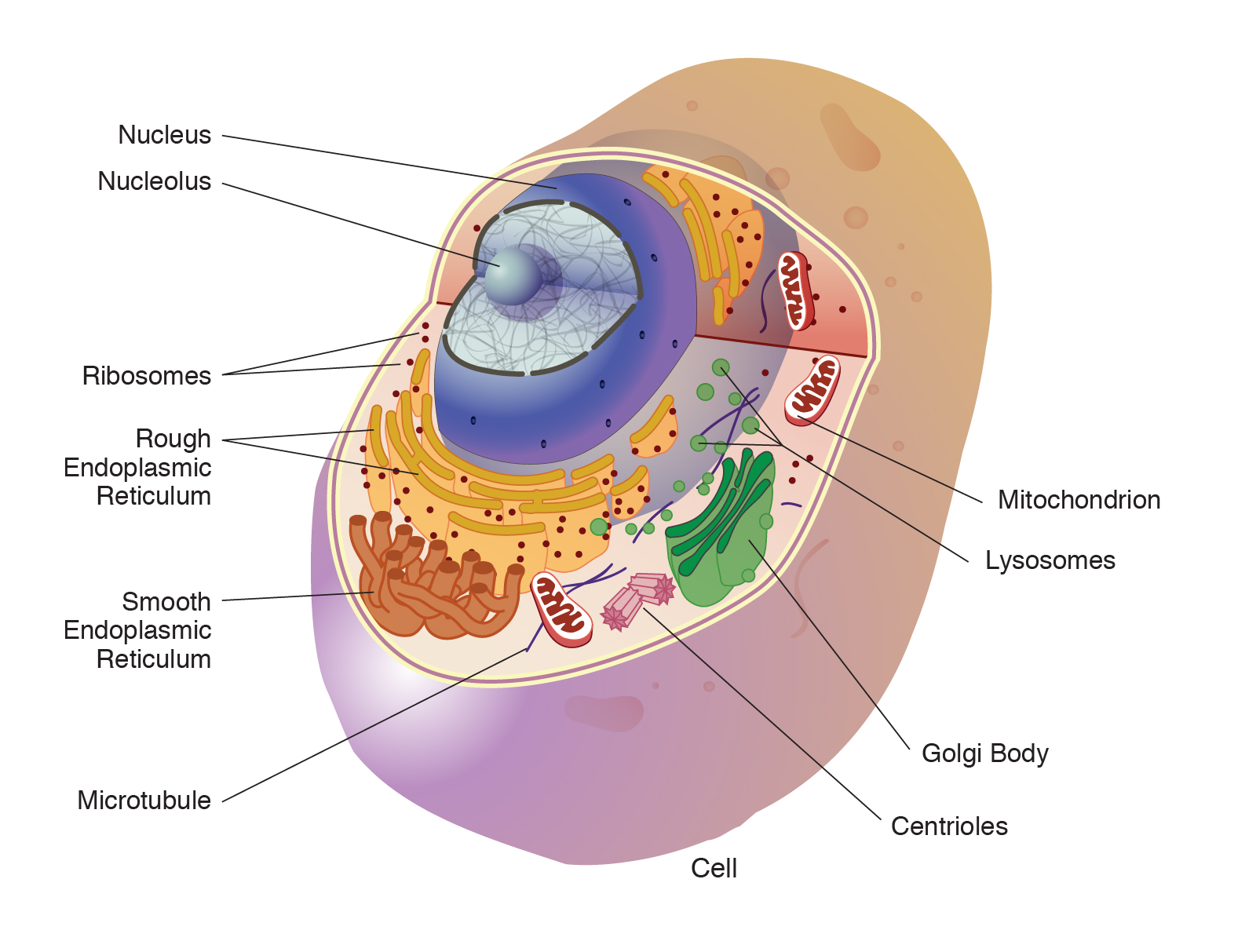Vacuole
Definition
A vacuole is a membrane-bound cell organelle. In animal cells, vacuoles are generally small and help sequester waste products. In plant cells, vacuoles help maintain water balance. Sometimes a single vacuole can take up most of the interior space of the plant cell.
Narration
Vacuoles are membrane-bound organelles that can be found in both animals and plants. In a way, they're specialized lysosomes. That is to say that their function is really to handle waste products, and by handle, mean take in waste products and also get rid of waste products. Sometimes the waste product is water, and therefore a vacuole would have as its function to maintain the balance of water inside and outside a cell. Sometimes a vacuole's function is to get rid of harmful toxins or to clear the extracellular space of those harmful toxins by bringing them into the cell for conversion; for chemical conversion into more safe compounds. The vacuoles are quite common in plants and animals, and humans have some of those vacuoles as well. But vacuole also has a more generic term, meaning a membrane-bound organelle that's lysosome-like.


